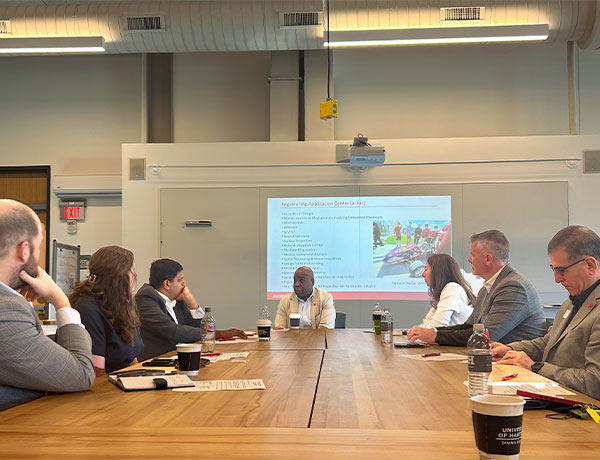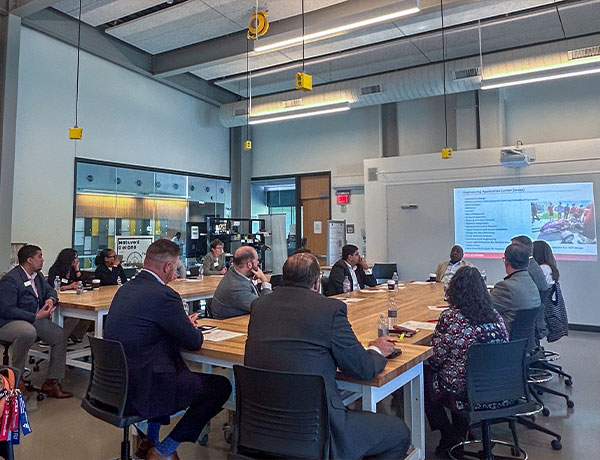

Now the state and industry are reaching back. In May, Ward joined a roundtable discussion with Paul Lavoie, Connecticut’s chief manufacturing officer, about the future of manufacturing in the state and how higher ed can play a role.
Held in the Makerspace at UHart’s Hursey Center for Advanced Engineering and Health Professions, the conversation centered on how Connecticut can grow its workforce, and the skills students will need to be a part of it. Leaders from companies such as Bauer, Electric Boat, Triumph, Pratt & Whitney, and Stanley Black & Decker were in attendance.
Lavoie, a familiar face on the UHart campus, has long sought to encourage students to stay in Connecticut to build their careers after they graduate. UHart, with more than half of this year’s graduating class hailing from Connecticut, is an ideal partner in this effort.
During the roundtable, Hisham Alnajjar, dean of UHart’s College of Engineering, Technology, and Architecture, reviewed CETA’s programs and described the ways students and faculty regularly complete internships and projects for local industry. He also talked about the CETA Design Expo, in which student projects are judged by a panel of experts, including industry partners.
Alex Coury, UHart’s associate vice president for partnerships and career experiences, highlighted the ways the University engages with industry through the Allan Center for Career and Professional Development.
Ward spoke of the future of the University, and the group then launched into an open discussion about what UHart and local industries each need to more closely partner with each other. The morning wrapped up with a tour of campus.